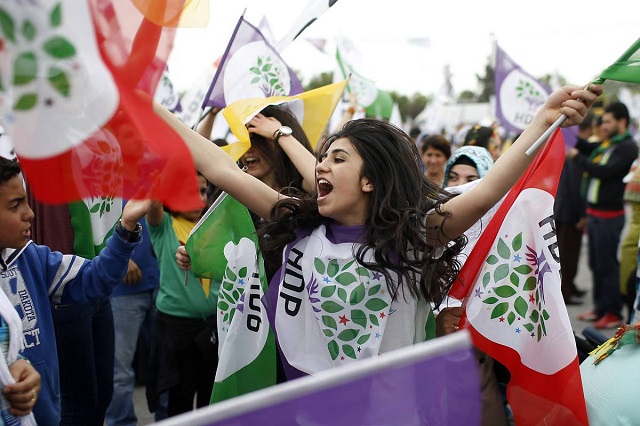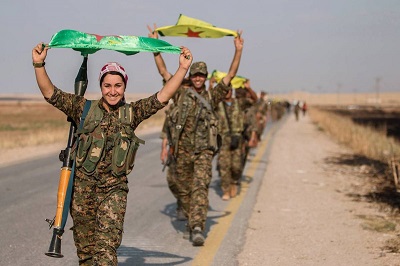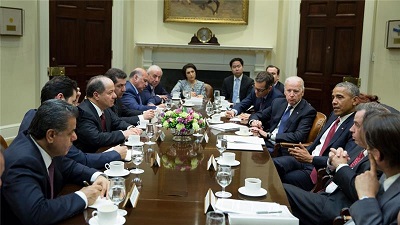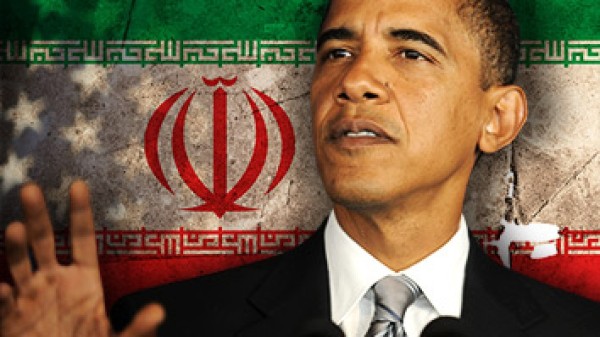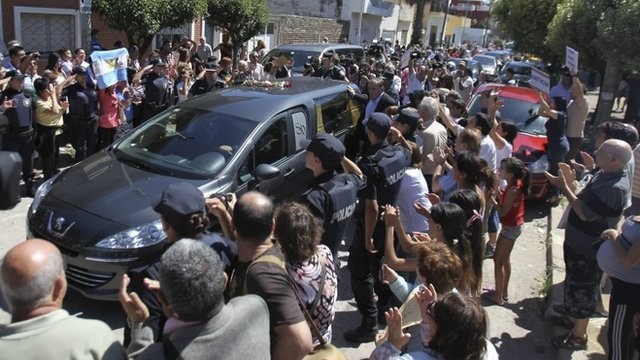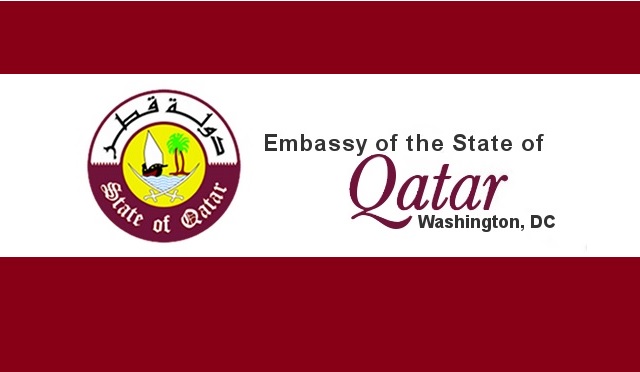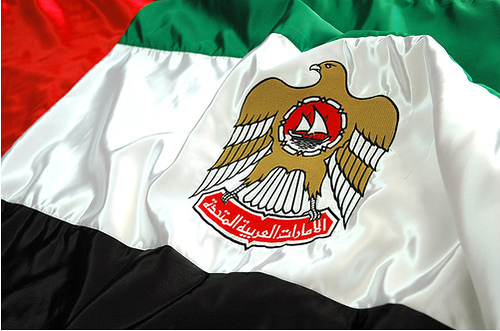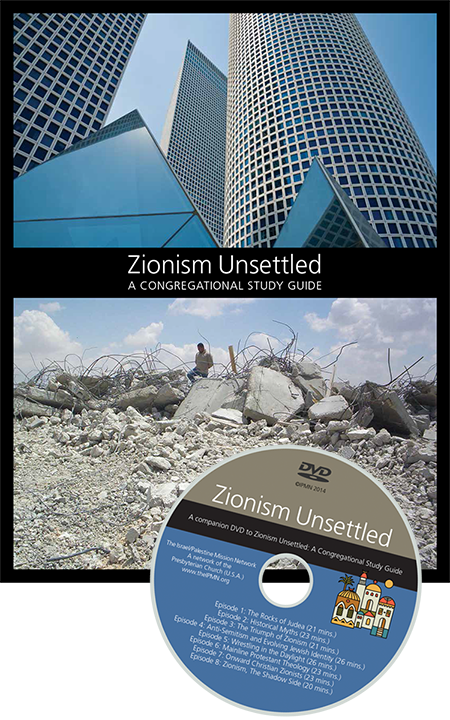‘The Golan is ours’ — Israel Sovereignty and American National Security
A momentous joint press conference was held at the White House with President Trump and Prime Minister Netanyahu on February 15, 2017. For the first time in recent memory, a U.S. President was not demanding that Israel relinquish sovereign territory that had been granted under international law. That meant that the Jewish nation was entitled to negotiate secure borders in the land west of the river.
Things appear to be changing in the Middle East among the Sunni Arab monarchies, Emirates and states recognizing that America’s democratic ally is the proverbial strong horse opposing the hegemonic aspirations of the Shia Islamic Republic of Iran. An Iran that in consort with its proxy Hezbollah is actively engaging in creating a Shia crescent from the Persian Gulf via Iraq and Syria to the Mediterranean Coast of Lebanon. Moreover, Iran has control of two world maritime choke points in the oil trades; the Straits of Hormuz and the Bab al Mandab (at the mouth of the Red Sea).
The Golani tree symbol of the IDF Golani Brigade of the Northern command.
For Israel there is evidence that Iran’s IRGC Qods force and its proxy Hezbollah are ranging across the vital Golan Heights frontier. That is reflected in clashes that resulted in the deaths of IRGC Generals and a Hezbollah commander, son of the terrorist mastermind Imad Mughniyah. A frontier that is also witnessing the expansion of ISIS militia on the southern portion of the Golan frontier.
The Golan is strategic to Israel’s national security reflected in its annexation by Israel’s parliament the Knesset in 1981. Yet, there have been efforts at the UN suggesting that Israel’s sovereign claim to the Golan is questioned. That despite it being included in the original Palestine Mandate granted to Great Britain at the Sam Remo conference in 1920. After two climatic wars fought in 1967 and in 1973, Israel is not about to give up its sovereign claim to the Golan.Further, Israel’s ears on the Middle East can be found on the summit of Mount Hermon at the base of the frontier monitoring digital communications. IDF Golani units are deployed on the heights of this important bastion. The UNDOF force in the demilitarized has been routed during the six plus years of the Syrian civil war. Israel has provided humanitarian aid and medical assistance to Syrian civilians and casualties of opposition militias often treating them in field hospitals and in emergency cases sending them to hospitals in central Israel. The Syrian frontier on the Golan divides the Druze community, the Israeli branch of which are loyal citizens and yet understand the predicament of their cousins across the frontier.
There has been talk of establishment of so-called safe zones in southern Syria at the apex where Israel, Jordan and Israel meet. At issue is what international forces would staff it. Given the record of the UN peacekeepers it is dubious that it could effectively defend the suggested safe zones. Israel’s experience in the Lebanon wars indicates that it is not about to take on the responsibility of a security zone in Syria. The one in Lebanon ended disastrously in the pell mell withdrawal from the Southern security zone in 2000.
That apex at the conjunction of the three counties frontiers is now the target of the Islamic State. A recent Jewish Press report confirms the activity of Islamic State Salafist militia overrunning the apex area of Southern Syria, Jordan and Israel threatening the Golan frontier. It reports that the ISIS militia is lead by a Palestinian Salafist. While the IDF Chief of Staff Eizenkot would like the UNDOF to block further movement by the ISIS, their track record has been abysmal. Thus his assessment is that the IDF on the northern frontier could see intense fighting occur this spring.
Jonathan Schanzer and Marc Dubowitz crystallized in a Wall Street Journal article, “Golan,” stressing the vital importance of Israel’s sovereignty. They noted:
Benjamin Netanyahu has achieved his primary objective of resetting ties with the U.S. after eight years of tensions. True, the Israeli prime minister and Donald Trump still need to bridge the gap on issues such as Palestinian-Israeli diplomacy and West Bank settlements. But they seem to be on the same page on a broad range of regional matters.
That could lead to a breakthrough on an issue of strategic importance to Israel. According to reports of the two leaders’ meeting on Wednesday, Mr. Netanyahu asked for U.S. recognition of Israeli sovereignty over the Golan Heights.
The move makes sense for both sides. It would provide the Israeli government with a diplomatic win while helping the Trump administration signal to Russia and Iran that the U.S. is charting a new course in Syria.
[…]
By recognizing Israel’s sovereignty in the Golan, the Trump administration would signal to Russia that, while Washington may now coordinate with Moscow on activities such as fighting Islamic State, it doesn’t share Russia’s goals for Syria.
Moreover, it would show that the U.S. will take a tougher line on the provision of arms and intelligence to Iran and Hezbollah.
Recognition of Israel’s Golan claims would acknowledge that it needs these highlands to hold off a multitude of asymmetric and conventional military threats from Syria—and whatever comes after the war there. Israel continues to target Iran’s Islamic Revolutionary Guards and Hezbollah to prevent them from establishing a base of operations on the Syrian Golan.
Recognizing Israel’s sovereignty in the Golan would also soften the Palestinians’ core demand for a state within the 1967 borders. If an international border can be revised along the Syrian border, the Palestinians will have a harder time presenting the 1949 armistice line along the West Bank as inviolable.
Against this background we reached out to someone who knows the strategic importance of what Messrs. Schanzer and Dubowitz have espoused, Ambassador Yoram Ettinger former Israeli emissary in Washington involved with Congressional liaison.
Mike Bates
Mike Bates: Good afternoon welcome back to Your Turn, this is Mike Bates. We continue with our conversation, our Middle East round table discussion. With me in studio is Jerry Gordon, Senior Editor of the New English Review and his blog the Iconoclast.
Jerry Gordon
Jerry Gordon: Glad to be back.
Bates: And joining us by telephone from Israel is Yoram Ettinger, former Israeli Congressional Liaison.
Yoram Ettinger: Thank you very much.

Former Ambassador Yoram Ettinger
Bates: Ambassador Ettinger, from your perspective as a former Israeli Emissary involved with Congressional relations, how significant was the outcome of the joint press conference at the White House on January 15th?
Ettinger: I would say that the outcome of the meeting between the leaders of the US and Israel is very significant. It signals reconnection of the US administration with Middle Eastern reality after eight years – and more years – of assuming that the Palestinian issue is the core cause of regional turbulence and the crown jewel of Arab policymaking. Now there is an Administration that realizes, with all due respect, the Palestinian issue is not the primary or secondary, not even tertiary issue when it comes to Middle East priorities. The current administration seems to focus on the major threats to the US as well as to Western democracies and the regional and global stability. These are: Iran’s megalomaniacal aspirations and its aim to become a major nuclear power. Second is Islamic terrorism and third, the need to minimize the clear and present danger to every pro- American Arab regime in the middle east, such as Saudi Arabia, Jordan, Egypt, Kuwait, Abu Dhabi, Dubai, Bahrain and Oman.
On all of those issues – Iran, Islamic terrorism, and the need to stabilize the pro- American Arab regimes – Israel plays a very unique role. The question is, are you going to sacrifice the very essential cooperation between US and Israel on the altar of the Palestinian issue? It seems to me that President Trump and his advisors may or may not go along entirely with Israel’s view of the Palestinian issue. They are not going to sacrifice dire American national security interests on the altar of the Palestinian issue, which is not, is not, a core cause as far as Arab policymaking is concerned.
Bates: Ambassador Ettinger, I realize Israel is a democratic country, and like every democratic country, the people are not unified in their view of the world any more so in Israel as it is in the United States. But I’m curious. If you can generalize, what is the sense of the Israeli people to President Trump versus what we had for the previous eight years, President Obama?
Ettinger: Certainly Israel is highly diversified as far as ideology, as far as world view, even as far as Judaism is concerned. However, one should note that a major factor in Israel is a sense of patriotism. We see that on the occasion of wars, on the occasion of conflicts with Arab countries, and recently on the issue of the Palestinians. We see coalitions of all the big groups in Israel. In fact, something which is not common in the US. The majority of our special operation forces are very Dovish, and I emphasize very, very Dovish in their world view, and the majority of Israel’s combat pilots are also very Dovish.
And, their worldview has nothing to do with the fact that they are first to be called to serve during wartime, and they serve superbly.
When it comes to President Trump, the perception in Israel is that he is supportive of Israel. The public has accorded him at this point very significant support, unlike the case of the eight years with President Obama – when many Israelis sympathized with him as far as personality is concerned, maybe as it was reflected by television, newspapers, radio – but most Israelis were aware that as far as President Obama was concerned, Israel was not exactly one of his top positive priorities. When it comes to President Trump, the sense is that he does regard the Jewish State as a cardinal, positive element on his agenda.
Gordon: Ambassador, what is the danger of having a Palestinian state adjacent to the Jewish nation of Israel?
Ettinger: When it comes to Israel, the clear and present lethal threat is highlighted at this time of global instability, violence, and intolerance, tenuous agreements, tenuous regimes and policies. With a Palestinian state, Israel would be once again constrained to an eight-to-fifteen mile sliver along the Mediterranean, over-towered and dominated by the mountain ridges of the West Bank of Judea and Samaria. This is not exactly a prescription for long life expectancy. It’s a prescription for suicide, I believe.
But the key point is not what it means for Israel. For your American listeners, the issue is what would the impact be on America’s national security. And Americans should know when it comes to a Palestinian State, based on its track record, we are talking about a definite erosion of America’s authority in the Middle East and definite injury to very important American national security interests. For instance, there is the American-supported Hashemite monarchy in Jordan. A Palestinian State on the one hand and Hashemite regime in Jordan east of the Jordan River constitute an oxymoron.
Top Jordanian military officers made it very clear to their colleagues in Israel that the top priority of the Hashemites is to prevent the establishment of a Palestinian state. Now the issue is not merely one more, or one less pro- American Arab regime. A change in regime in Jordan would cause tectonic ripple effects, which would not be limited only to Jordan, but a definite spill- over southward to Saudi Arabia and from Saudi Arabia to the rest of the pro- American Arab Gulf states.
This means that a Palestinian state could trigger ripple effects all the way into the Persian Gulf area, playing into the hands of Iran, also possibly into the hands of Russia and China and certainly adversely effecting America’s interest. It could create an Iranian block from Iran through Iraq, Jordan, all the way to fifteen miles from the Mediterranean. That would mean loss of pro- American control of two critical waterways, the Bab el Mandab and Hormuz Straits in the Indian Ocean and the Persian Gulf, two of the most critical waterways for oil tankers, which would have an impact on the global economy and American economies.
You might also find a guarantee of naval rights, landing rights for the Russian, possibly Iranian, maybe Chinese, naval and air force, in the eastern flank of the Mediterranean, which once again would undermine vital American interests.
All this is based on the track record of Palestinians, which includes the waves of terrorism in the 1920s, 30s, 40s; collaboration with the Nazis during the Second World War; collaboration with the USSR after the war; collaboration with Ayatollah Khomeini after the demise of the Shah of Iran; and very close ties with Russia, North Korea, China, Cuba, and Venezuela.
Bates: Ambassador Ettinger there was a recent The Wall Street Journal op-ed by Jonathan Schanzer and Mark Dubowitz of the Washington DC based Foundation for Defense of Democracies drew attention to the possibility of Israel asserting sovereignty over the Golan Heights. Why did Israel annex the Golan Heights in 1981 and what geo-political and national security significance does it have given the threats on the frontier from Iran’s proxy Hezbollah and Syrian Islamic opposition and ISIS?
Ettinger: First of all, the Golan Heights is not foreign terrain for the Jewish state. The Golan Heights is part of the Jewish homeland going back some 3,500 years . As far as contemporary strategy is concerned, there are only two options when it comes Golan: will it be part of Israel, controlled by Israel; or will it be a platform for rogue organizations, rogue regimes. There is no other option, although again in the wishful la-la land of some western policymakers, one could transform it into an international, neutral area. Certainly when you look at the Middle East there is no such thing as a neutral element or neutral space.
As far as the impact of the Golan Heights, once again on the region as a whole and on Israel. One can go back to 1970 when Syria was a major military Arab power, Syria invaded Jordan. With the US bogged down in Southeast Asia, there was no way it could stretch military hand and help the pro- American late King Hussain. They called Israel. Israel mobilized its troops and the following day – without firing a single shot, only through the posture of deterrence of the presence of Israel – the Syrian military withdrew back to Syria. That was possible because Israel controlled the Golan Heights in 1970, which meant we were at the point where we could reach Damascus and basically take over Syria.
Should Israel be off the Golan Heights, and once again there is violence which threatens pro-American Arab regime in Jordan, without the Golan (and certainly there would already be a Palestinian state), Israel would be in no position, have no power to exert any posture of deterrence to assist the US, assist pro-American Arab regimes. We are talking today about the proliferation of Islamic terrorist organizations, many of which operate in Syria, which means with proximity to the Golan Heights and should Israel get off Golan Heights, the only question would be: which rogue regime, which rogue organization, will then control the Golan Heights.
Bates: There is no question that the Golan Heights are critical to the security of Israel. I made a day trip through Golan Heights when I was in Tiberius a few years ago. It’s beautiful, sparsely populated area. It is of massive strategic importance. Why doesn’t the United States recognize the Golan Heights as part of Israel’s sovereign territory and is there any chance that will change under a Trump presidency?
Ettinger: It’s true that Golan Heights is critical for Israel’s national security, but it’s also true that it is very important for America’s own national security, America’s own posture of deterrence in the Middle East. Israel on the Golan Heights, Israel on the mountain ridges of Judea Samaria extends the strategic hand of the USA. With Israel off the Golan Heights and certainly off the mountain ridges of the West Bank, Israel is going to be transformed from a national security asset to a national security liability and a burden on the US. And the US is facing, in my mind, intensifying, and not reduced, threats due to the current trends in the Middle East and throughout the world. The US cannot rely on Europe which has lost its will power gradually – and is also losing its muscle. Israel is the only element in the Middle East upon which the US can rely. It is probably the most effective force anywhere in the world upon which the US can rely on.
Bates: No, question about it Ambassador.
Gordon: Ambassador, what is behind Israel’s emergence as a world leader in high tech global investments and its impact on the country’s economy?
Ettinger: Out of necessity, due to the attempt to strangle Israel territorially, militarily, economically; due to various attempts to boycott and sanction Israel; and due to real lack of natural resources, Israel had to rely on its brain power. We have managed not only to survive but we have managed to develop – I would say next to the US – a major global, high tech technological country, both commercially and militarily. Today, in Israel, we have 250 research and development centers operated by global high tech giants, most of them American, some European. These are the centers that develop for Intel and Microsoft, and Apple and Google, and other giants, the latest innovative technologies. Israel contributes to research and development in America, to the competitiveness of American industries in the global competition, and to America’s foundation of employment.
Bates: It is a huge benefit, Ambassador. We have been speaking with Jerry Gordon of the New English Review and its blog the Iconoclast and with Ambassador Yoram Ettinger. You can find Ambassador Ettinger online at www.theettingerreport.com.
Thanks so much for joining us this afternoon on 1330amWEBY
Listen to the broadcast, here.
EDITORS NOTE: This column originally appeared in the New English Review.


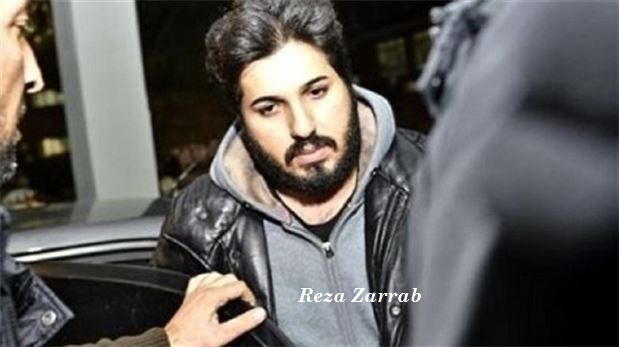

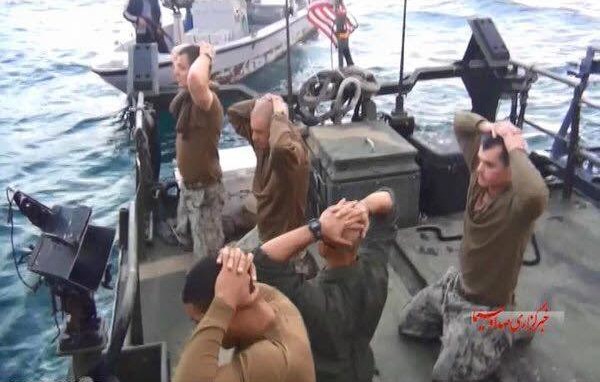 Yesterday, when we
Yesterday, when we 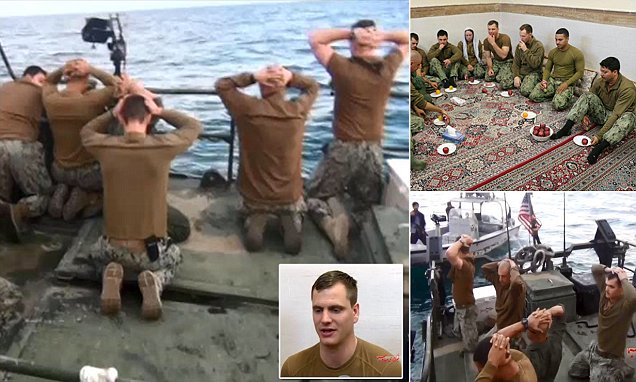

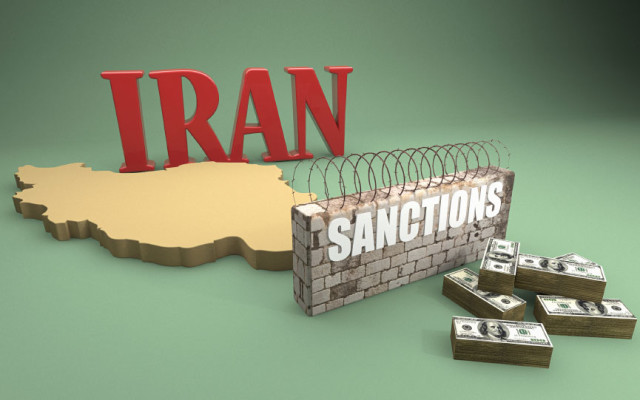
 David B. Rivkin, Jr., Esq.
David B. Rivkin, Jr., Esq.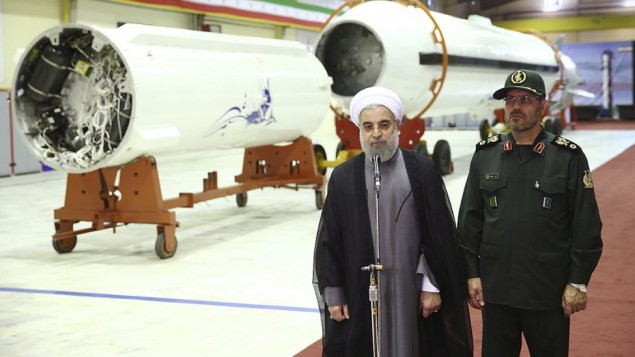
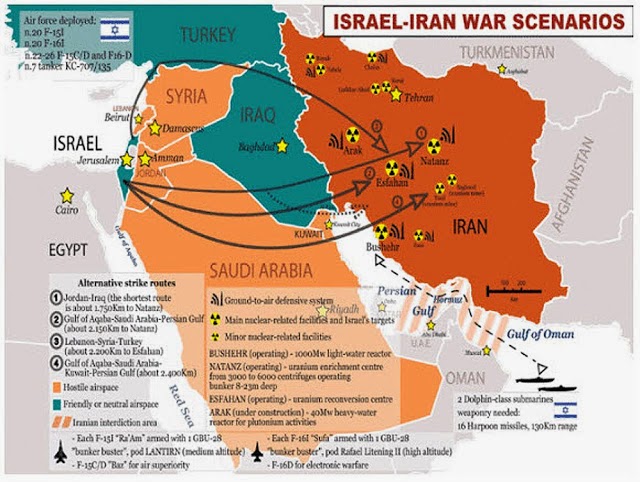 In 1964, I sat in a darkened movie theater in Washington, D.C. with a fellow Army Intelligence officer watching Stanley Kubrick’s brilliant dark satire film on how to live with thermonuclear warfare,
In 1964, I sat in a darkened movie theater in Washington, D.C. with a fellow Army Intelligence officer watching Stanley Kubrick’s brilliant dark satire film on how to live with thermonuclear warfare, 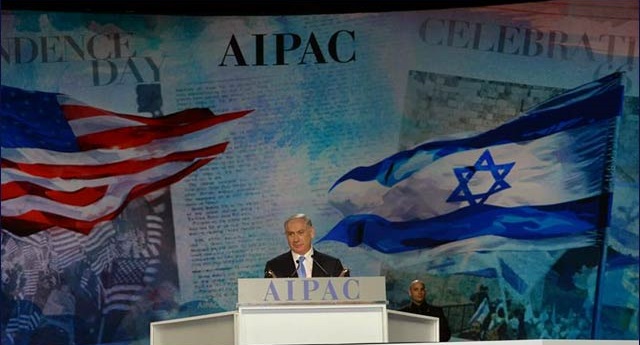
 This Times
This Times 